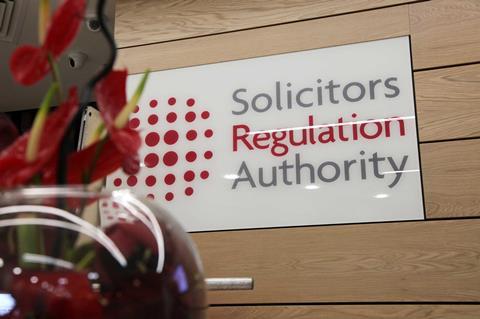The majority of legal professionals remain positive about the Solicitors Regulation Authority – although a quarter are likely to express negative sentiments about it. So says a survey to be published today by the SRA.
The regulator reports that, of around 3,400 respondents from the legal profession, the public, business owners and elected representatives, in general most have trust and confidence in legal services.
Asked for a view on the SRA, 56% of lawyers were positive compared with 18% who were neutral or unsure and 26% who had a negative outlook.
This compared with just 5% of consumers who viewed the SRA negatively and 4% of businesses owners. More than three-quarters (76%) had a net positive view of the organisation.
Less than half of lawyers (48%) felt that SRA activity had increased their confidence and trust in legal services, compared with 24% who disagreed. More than two-thirds (68%) of consumers said the SRA had increased confidence and trust in the profession.
Overall, 62% of lawyers believe legal services are well regulated compared with around 75% of both consumers and business owners.
The survey revealed widespread ignorance of the SRA among members of the UK parliament and the Welsh Senedd. Just 58% of 101 politicians polled were aware of the SRA, and of these just 25% said it had increased trust and confidence in legal services, while 49% said legal services were well regulated.

The research identified nine key drivers of confidence and trust in legal services. The most important drivers were high standards in legal services, legal professionals who have done high quality training and qualifications, and transparent cost structures. All of these were considered important factors for the SRA to play a role in.
Most people who have used a lawyers were happy with the level of transparency they received: 89% of consumers and 87% of small and medium sized businesses agreed that their provider helped them to understand all the costs involved.
Value for money was ranked much less important than cost transparency, and while consumers often felt that legal services were expensive, most who had used legal services in the last year said the price was right for the legal service they received.
Most lawyers felt that the SRA was important for driving confidence and trust, but in interviews some expressed concerns about proportionality and suggested the regulator is too punitive towards minor infractions. Others said that SRA enforcement action was too reactive. Some felt the SRA had not made its stance clear enough on issues such as the Post Office scandal and the Axiom Ince collapse, and believed that the SRA went too far in punishing solicitors for behaviours outside of practice for which the criminal justice system had already punished them.
Anna Bradley, chair of the SRA board: said: ‘Getting the views of more than three-thousand stakeholders has been invaluable. It is good to see that generally people’s priorities chime with our strategy, where high qualification and professional standards are central.
‘It does, however, identify areas where we need to do more. We are already using the results to shape our work. There are some really rich insights in the report, which we think will be useful to anyone who is interested in what drives trust and confidence in legal services.’
The research set out to establish a benchmark for the level of confidence and trust in legal services. The SRA will repeat the full research exercise again when its current strategy finishes in 2026 to find out whether and how its work and that of others has changed levels of trust and confidence.
The Law Society criticised both the timing and the content report. Responding today, Society president Richard Atkinson said: 'The SRA should have waited for the Legal Services Board to publish the outcome of its review of the regulator’s handling of the Axiom Ince and SSB Group cases before publishing this report.
'We have repeatedly said the SRA should concentrate on its core role by setting standards, assessing and acting on risk, taking action in response to non-compliance, protecting consumers from harm and protecting the reputation of solicitors. It should not be seeking to implement its existing fining powers** at the expense of the Solicitors Disciplinary Tribunal. Should the proposals go ahead, they would have serious repercussions for the legal profession and access to justice.'
However Atkinson conceded that the report 'provides some use to the profession, such as findings which show that although legal professionals were more likely to express negative sentiment about the SRA compared to other groups'. However, there are many other issues the regulator could be tackling, Atkinson said, including training and professional ethics.
'Our members have told us they would like more guidance from the SRA on professional ethics,' Atkinson said. 'We would welcome greater collaboration with the SRA on professional ethics and how the legal profession can be supported as they navigate their duty to the court and their duty to their client.'
This article is now closed for comment.



























45 Readers' comments